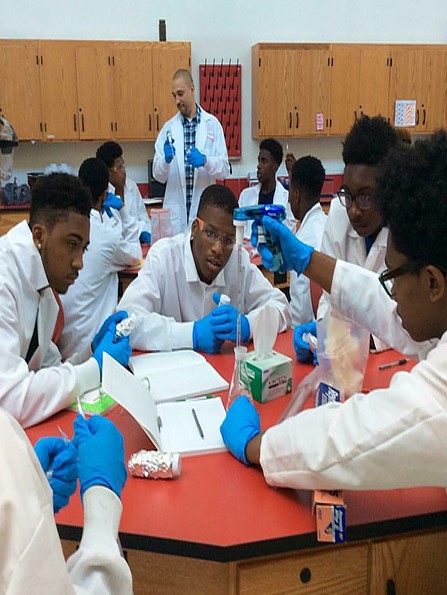#TMPprogramspotlight: 1Nation Mentoring
Published
1Nation Mentoring serves African-American youth ages 12-24 and focuses on cultivating their leadership potential, empowering positive behavior and promoting healthy life decisions. Kevin McNair, Co-Founder and Executive Director, sat down to share a little more about how his mentoring program incorporates social-emotional learning.
How do you see adult relationships in your program impacting the Social and Emotional Development of the youth you serve?
I see adult relationships in our program having a monumental impact on the Social-Emotional development of the youth that we serve. By teaching our youth mindfulness and coming in from a place of empathy and understanding, it truly allows us to use every experience as a teachable moment to help create a mindset that breaks barriers and overcomes obstacles. Through mindfulness, we teach our youth the power of self-awareness and accountability, as one's own actions affect those around him or her.
Families are primary and critical sources of support for their children and play fundamental roles in students’ social and emotional development. How does your program engage parents and families?
We engage parents by reaching out to them once we are introduced or referred to their child. We then create and maintain healthy relationships, inviting parents to participate in the establishment of positive goals for their youth. This forms a stronger support system for the youth that we serve, cultivating a trusting environment that leads to greater levels of success.
What are some innovative strategies that your program has incorporated as it relates to SEL?
We have incorporated several innovative strategies into our programming that relates to SEL. Our main focus is staffing schools with Character Coaches who work with specific students throughout the school year. Understanding the students’ backgrounds, these coaches help them to better navigate their community and educational spaces. We also conduct classes where we focus on areas affecting the youth’s social and emotional well-being; as well as building community circles, understanding cultural mindfulness and providing coping mechanisms for the youth to have in their toolbox for everyday living.
Your program prides itself on youth voice. How do you think youth voice (or lack thereof) affects SEL?
By youth seeing how their voices are heard and valued, it allows them to fully engage in non-traditional learning styles. They become more open minded, stepping out of their comfort zones to listen to the ideas of others and express themselves freely. By validating their ideas and concerns, it empowers them to keep dreaming for the solutions that we know they have. I believe that when we don’t allow, or shut out their voices they think they’re wrong and nothing is worth saying because nothing will get done, and I completely disagree with that thought. So we encourage thinkers and doers, which is why our motto is “Think Great, Act Great, Be Great!”
